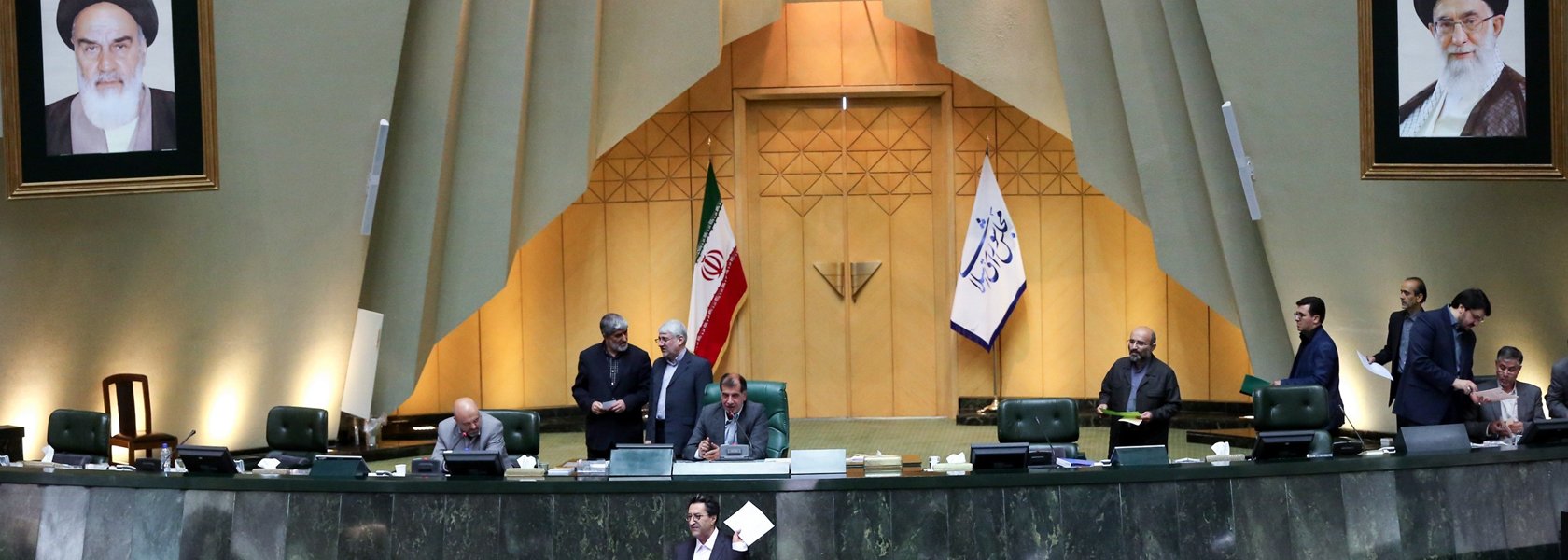HAVE THE PARLIAMENTARY ELECTIONS SET FOR 26 FEBRUARY BEEN ORGANIZED IN A FREE AND DEMOCRATIC MANNER?
No. Since the coming to power of the Islamic regime, all elections in Iran are severely restricted, notably because candidates are vetted in advance by the Guardian Council. This council consists of 12 members, including six clerics, who have the right to veto candidates. These six clerics are appointed by the Supreme Leader, and they lead the Guardian Council
For the parliamentary elections on 26 February, there were originally more than 12 thousand candidates, but now only about 6000 remain eligible for election. Many of the applications were rejected by the Guardian Council, without a genuine recourse to contest this vetting.
Therefore, elections in Iran are not truly free nor direct. This applies to the legislative but also the presidential elections.
ARE ALL POLITICAL VIEWS AND PARTIES REPRESENTED AMONG THE CANDIDATES?
When speaking about these upcoming elections, the Supreme Leader, who rules over the executive, legislature and judiciary, said "those who are not for the Islamic Republic can vote, but they cannot be a candidate." All candidates currently running in the legislative elections are therefore all favourable to the Islamic regime. There is no opposition.
During each legislative election, there are a number of incumbents who wish to be re-elected but their candidacy is not approved by the Guardian Council because their record while in the Parliament has been deemed “bad” by the Guardian Council. Specifically, if the Council considers that they were not sufficiently supportive of the Islamic regime during their previous mandate in Parliament, their candidacy for re-election is not approved.
So the Iranians who will vote in the elections in February will have a rather limited choice of candidates, as most of the remaining candidates align with the fundamentalist trend. This is also the reason why more than 400 Iranian academics and students living in Iran, published an open letter two weeks ago questioning the usefulness of these elections.
CAN WOMEN TO STAND FOR ELECTION AND VOTE IN IRAN?
Yes, there are female candidates in the two main lists, the fundamentalists and the reformists. The percentage of women among all candidates is however very low; below 10%.
With regards to voting, both women and men can vote if they are above the age of 18.
WHAT ROLE DOES THE PARLIAMENT PLAY IN IRANIAN POLITICS?
Every law passed by Parliament in Iran must be approved by the Guardian Council. If four of the six clerics appointed by Khamenei oppose a law, it is not adopted. Parliament therefore has no real power. It is more a venue for debate and discussion.
The true legislators in Iran are the six clerics of the Guardian Council, appointed by the Supreme Leader. Basically, it is an oligarchy posing as a republic. The difference between the political systems in Iran and Saudi Arabia is just in the name. Saudi Arabia considers itself an Islamic state, Iran an Islamic republic. But both are clerical states and oligarchies, even though Iran has a President and Parliament.
But the power of the Iranian president is also limited. Rouhani said he wanted to try to put in place reforms regarding fundamental freedoms, the release of political prisoners, and putting an end to the house arrests of two 2009 presidential candidates – Karroubi and Mousavi – and the latter;s wife Zahra Rahnavard, but since his election there has been no positive change concerning these issues. His ability to implement reforms, if in fact he genuinely wants to do so, is greatly limited by the judiciary, law enforcement, police, and intelligence services, all under the control of Khamenei.
WILL THE RESULTS OF THESE ELECTIONS IMPACT THE DAILY LIVES OF IRANIANS?
If reformist candidates win a quarter or a third of the seats, they will continue to support the policy of openness to the international community that has led to nuclear negotiations and the beginning of the lifting of sanctions against Iran. The lifting of sanctions will result in, among other things, the arrival of much needed medicines to improve people’s lives. But these elections alone will not lead to fundamental changes and political freedom in Iran.

